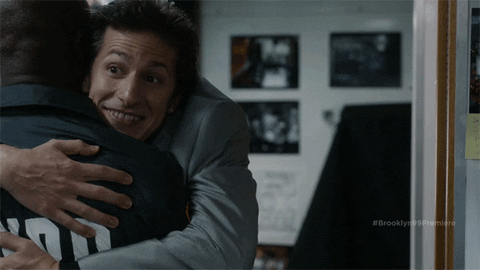In Human Resources and Talent Acquisition we have gotten very use to hiring managers making a statement like, “I really need someone with a high level of professionalism in this role”. Having experience as both an HR leader and a Talent Acquisition leader for twenty-five years, I thought I knew exactly what that meant.
My view of the term “Professionalism” meant the hiring manager was looking for someone who had a high skill level in communicating appropriately for each situation. That they had an appearance that seems to fit the culture of the organization and those we served. That in times of stress or crisis, they were able to keep their composure and work through situations to come up with an outcome that would be satisfactory to both sides.
What I never realized was that the term “Professionalism” is or is thought to be rooted in racism and white supremacy. But, as the social justice and BLM movements have brought many things to light over the past couple of years, I’ve been reading and hearing from people of color that the use of “Professionalism” as a descriptor was akin to saying “what we really want is a white person”.
I have to be honest, and I know folks will say this is because I was blinded by my privilege, but I never once in my career thought when a hiring manager said they wanted someone who was “professional” they were secretly telling me they wanted a white person. I probably think this way because I’ve had men, women, white, black, Hispanic, Asian, etc. tell me this as a descriptor/skill they desired as a hiring manager. But, this is also the difficulty of unconscious bias.
Is there a difference between “Professionalism” and “Civility”?
I can definitely see how the wrong individuals could easily use the term “professionalism” to mean white and not black. I’m not naive to the world. It does bring up the dilemma though on how do we actually measure or speak to how individuals should act in certain business settings. Of course, each company’s culture is different, so this is a constant moving target by company, by leader, by position, etc.
I think most HR leaders and Executives, regardless of gender, ethnicity, and nationality would believe there are appropriate and inappropriate behaviors and ways to conduct ourselves in a business setting. Probably 90% of which we could come to some sort of agreement on, and the other 10% would be personal preferences.
This then begs the question is “professionalism” really a racist ideal, or is it just an additional method some individuals/organizations/institutions could use to continue systematic racism where they see fit? If that is the case, then how can we communicate the 90% we agree on in a fair and equitable way where all employees feel like they belong?
This brought me to the concept of Civility.
Civility is defined as formal politeness and courtesy in behavior or speech. Sounds a bit like how we would define “Professionalism” so it makes me wary we are just using a different word. I did find a Civility expert, Sejal Thakkar, who trains organizations and employees on how to be more civil with each other. She had a post on Linkedin and shared a bunch of really great resources explaining that no matter your role at work, from the lowest-paid worker to the CEO, all should be acting with civility, at all times. (Click here for Sejal’s LinkedIn post with resources) (Also, go connect with Sejal, I really like what she’s doing around Civility in the workplace!)
My question to Sejal was simply, in these current times I get messages from leaders who feel like they are being held hostage by some of their employees. These employees feel empowered to say anything without any recourse. They can talk divisively at work about politics, their beliefs and ethics, while attacking other’s beliefs and ethics that are different than theirs, and leaders feel like they have to allow this to happen. How can leaders deal with this issue of feeling like they are being held hostage by some strongly opinionated employees who are causing dissension at work about non-work things?
Sejal’s response was what I expected. All employees, both leaders, and non-leaders should be acting civil towards each other at all times, with no exceptions. She was short and sweet in her response. There is no room for incivility in the workplace. Period.
It’s fine to disagree about big things in the world, and still act civil towards each other, especially in the workplace. An employee might have voted for Biden and hated Trump, and can’t fathom that another employee actually voted for Trump, but that doesn’t give license to either employee to act uncivil towards each other. You can have employee support BLM and have employees support Law Enforcement, all the while being civil towards each other. If both, or either does act uncivil, it should be dealt with in your normal course of discipline as if they acted inappropriately about anything else within your workplace.
What does Civility look like at work?
(I’m going cut and paste from one of the resources Sejal shared (Ten Ways to Create a More Civil Workplace) as this person can say it way better than I could ever write):
- Acknowledge Others. No one should feel invisible. Make eye contact. Greet people with “good morning”, “good afternoon”, etc. Use people’s names. Make people feel welcome in your presence.
- Think the Best. Most people are not trying to intentionally ruin things or do harm, try to assume positive intent. Until proven wrong, give the benefit of the doubt that people are trying to do the best they can with the resources and tools available to them.
- Listen. Stop focusing on yourself and your needs; instead, focus on other people. Don’t assume you need to solve anything, just hear and try to understand clearly what they are saying. Respect what others think and honor their right to see things differently than you do. It doesn’t mean you have to agree, just hear them.
- Speak Kindly. Be respectful in word and tone, particularly when delivering critical feedback. In addition, never gossip or speak unkindly of people when they are not present.
- Accept and Give Praise. It is said that one of the greatest things you can give someone else is a sense of their own worth. Praising the accomplishments of others and showing appreciation cost you nothing but deliver tremendous value. And when you are praised, a kind thank you is all that’s necessary. Gracious humility is a virtue.
- Be Agreeable. Be open to and look for opportunities where you can accommodate others, compromise, or simply allow someone else’s ideas to be implemented. Your way isn’t the only way.
- Respect Other People’s Time. Be punctual, end things on time, wait your turn to speak, show up to everything you’ve promised, and every time you fail to do so, apologize.
- Apologize Earnestly. Be clear about the error you’ve made and do not make excuses. Let others know that what you did was wrong and that you understand and regret the negative impact you’ve made.
- Accept and Give Constructive Criticism. Be clear about your intentions. If your intention is to help, then be helpful, however, if your intent is revenge or to manipulate things to your benefit, re-evaluate and walk away. When receiving criticism, assume the positive intentions of others. Be grateful, not defensive.
- Don’t Shift Responsibility and Blame. If you are part of the problem, own it, apologize if necessary, and help in finding a solution. Trying to place blame rather than working to find a solution makes you an obstacle. Don’t be that person.
I love these! Can you imagine, right now today, if we all worked in an environment where this was taking place! The world would seem lighter, for sure!
This is extra difficult right now in our work world because so many of our employees, who are working remotely, haven’t even met each other. It’s way easier to disregard another person when you don’t truly know them or their intentions.
Like I said above, I am not naive to the world. I understand people are hurting and fed up with the world they are living in, so we’ll see unrest and people being uncivil towards each other. I hope and like to believe, that we can create workplaces where people will feel like they belong and are safe to have civil discord. Because once it becomes uncivil it’s time for some folks to leave or are workplaces breakdown and that isn’t fair to the other employees who rely on the success of the business to pay their bills and feed their families.
We live in a world, currently, where most people seemingly do not first assume positive intent, and I can understand why. But for our workplaces to grow and thrive, we must fight to get to a place (understand I did not say “back to a place”) where we can all be civil towards each other working on common goals and successes.




